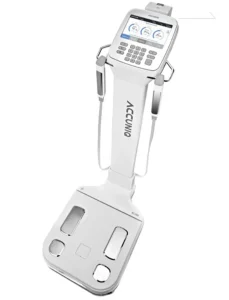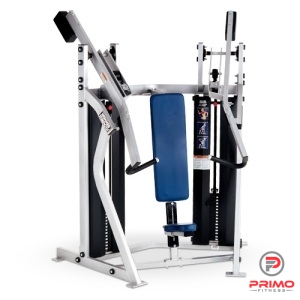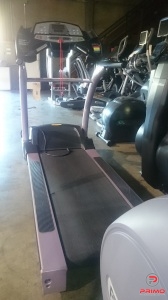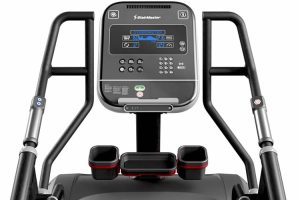ACCUNIQ BC380 is the most accurate measurement system for body composition. It is used in many health facilities, hospitals, and gyms. Commercial gyms are adopting the device and providing their customers with tailored prescriptions for effective workouts.
The new innovative technology uses low-level frequencies to offer quick body composition assessments through an LCD touch screen, printouts, and client tracking software. Let’s dive deeper into this device and how gyms are using it.

ACCUNIQ BC380 Features
The body analyzer measuring system has four features that make it ideal for gyms.
ACCUNIQ App
The mobile service is great for gym customers who want to manage their own body composition data. All they have to do is scan the QR code using their smartphones and view the results. The app stores all of the results over time so that they can track their progress. You can download the app on Google Play Store and Apple App Store.
ACCUNIQ Manager
The manager is an easy to use data management software that keeps track of customer results and manages data in an easy-to-read format. It can be used for single or multiple gym locations with accessibility to multiple devices.
Blood Pressure Monitor
The fully automatic blood pressure monitor is convenient and produces fast and accurate results.
Printed A4 Result Sheet
The results page is a comprehensive guide that helps people understand their measurements. It has measurement comparison to the healthy range, helping to make analysis both quick and simple.
Understanding the Result Sheet
Once your gym members use the ACCUNIQ BC380, they will be able to get a printout of their measurements. The result sheet contains a graphical analysis, which can be used to help members maintain healthy body composition.
Users should input their age, height, and gender to help the system compare results with a medically-based reference range, which indicates:
- Optimal
- Under
- High
Here are the different types of information you will receive after using the body composition measuring system.
Total Body Weight
The total body weight measures your body mass, which combines your body water, protein, minerals, and body fat content.
Lean Body Mass
Your lean body mass consists of muscle, protein, and minerals. A higher lean body mass will help you improve your metabolism to burn more calories and utilize your body’s fat to sustain a healthy body.
Skeletal Muscle Mass
The skeletal muscle mass refers to the muscles attached to the bones in your body that you use for training and cardio. High skeletal muscle mass means that you are producing more heat to burn calories, which gives you a higher basal metabolic rate (BMR). The BMR is the rate your body burns calories while you are at rest. Increased amounts of skeletal muscle mass along with sufficient protein intake, lead to a higher metabolism.
Protein
The protein report refers to the number of nitrogen cells within the body. Nitrogen is a protein component that allows your body to repair tissue and cells. It is crucial for the development and growth of skeletal muscle mass.
Mineral
The mineral section of the report is your bone mineral estimate. When you have a high skeletal muscle mass and high protein mass, you will be able to maintain the proper bone mineral content. As you age, bone mineral content will decrease, so it’s important to discover whether you have a low bone mineral estimate and create a weight resistance training program while consuming protein.
Total Body Water
The total body weight measures your body mass, which combines your body water, protein, minerals, and body fat content.
Lean Body Mass
Your lean body mass consists of muscle, protein, and minerals. A higher lean body mass will help you improve your metabolism to burn more calories and utilize your body’s fat to sustain a healthy body.
Skeletal Muscle Mass
The skeletal muscle mass refers to the muscles attached to the bones in your body that you use for training and cardio. High skeletal muscle mass means that you are producing more heat to burn calories, which gives you a higher basal metabolic rate (BMR). The BMR is the rate your body burns calories while you are at rest. Increased amounts of skeletal muscle mass along with sufficient protein intake, lead to a higher metabolism.
Protein
The protein report refers to the number of nitrogen cells within the body. Nitrogen is a protein component that allows your body to repair tissue and cells. It is crucial for the development and growth of skeletal muscle mass.
Mineral
The mineral section of the report is your bone mineral estimate. When you have a high skeletal muscle mass and high protein mass, you will be able to maintain the proper bone mineral content. As you age, bone mineral content will decrease, so it’s important to discover whether you have a low bone mineral estimate and create a weight resistance training program while consuming protein.
Total Body Water
Your total body water consists of intracellular and extracellular water, which means all of the water inside your body. Healthy body water should be 45-65% of the total body weight. Depending on the activity level, it’s necessary to ensure adequate fluid intake throughout the day and remain hydrated.
Segmental Analysis
The segmental analysis shows each section in terms of lean body mass and subcutaneous fat mass. This analysis can help you discover any muscular imbalances and track muscular increases in a specific body part, like the arms. Users will also be able to look at their fat mass in specific body parts.
Body Balance
This section indicates the balance of your lean body mass between the different regions of the body.
Total Fat Mass
The total fat mass shows your lean body mass subtracted from your overall weight to give you your total body fat.
Body Fat Percentage
This is the percentage of body fat compared to your overall weight.
Visceral Fat Level
Visceral fat is hidden and stored around the internal organs. A thin person can have high visceral fat content. This analysis is graded with a numeral score.
Visceral Fat Area
Users can also identify the area of their fat in cm2. The visceral fat level may stay the same, but the visceral fat area can change.
Waist/Hip Ratio
This report indicates the body’s internal fat distribution. A higher number in this area means a more uneven fat distribution between the waist and hips. It is calculated by dividing the waist circumference by the hip circumference.
Extracellular Water
Body water or extracellular water evaluates the water balance of the extracellular water and total body water.
Abdominal Circumference
This is an approximate measure around the naval.
Basal Metabolic Rate (BMR)
The BMR is the minimal amount of energy needed by the body to sustain vital functions while at rest. Basically, it’s how many calories you are burning while at rest.
Goal To Control Body Fat
This area of the report shows users an estimation of how much body fat needs to be controlled to be within standard medical ranges.
New Approximate Calorie Intake
This section gives users an estimated calorie amount required to reach your control guide goal.
Time to Control Body Fat
This is the amount of estimated time it might take the user to reach the new control guide goal.
Bio Age
Your bio age is a number based on your internal health. It takes all of the above features into account and indicates if your body is younger or older than your chronological age.
Fitness Score
The fitness score is the last number reported. It is the total of your overall results out of 100. Users should set a goal to increase this score.
Using the ACCUNIQ BC380 in Your Gym
Once your gym members understand their body composition printout, your trainers can work with them to create workouts catered to their individual bodies. This will improve weight loss and muscle tone using a medically based analysis.
Being able to provide your members with a detailed analysis of their body will give them the determination they need to succeed, and help keep them coming back to your gym so that they can see their progress.




